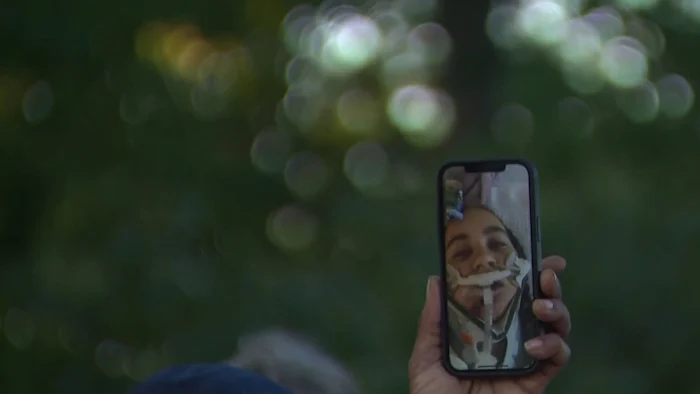By Joel Julien
Copyright trinidadexpress

Social media makes sharing content effortless. Sometimes, all it takes is just one click.
And as a result, many people assume they can freely use images, songs, or other material they find online, or share it via their social media accounts, because it is in the public domain.
However, this is not true, the Trinidad and Tobago Intellectual Property Office (TTIPO) has warned.
“Copyright protection applies to all original works no matter where they are sourced from. If you plan to use images or songs from the Internet, especially for commercial use, you will need to get permission from the rights holder first,” the TTIPO told Express Business.
According to senior counsel Regan Asgarali, the controller of the TTIPO, and technical examiner Michael Edwards, intellectual property in Trinidad and Tobago, as in many countries, is often not well understood by the public, which can lead to misunderstandings about the system.
Recent court disputes over creative content show how quickly such misunderstandings can escalate.
Even in sports, the stakes are high.
Before its first match in the ongoing Caribbean Premier League T20, the Trinbago Knight Riders issued a warning on Facebook urging fans to respect its logos, slogans, and other intellectual property, emphasising that any misuse could lead to legal action.
“TKR Trinidad Ltd is a company duly incorporated by the provisions of the Companies Act Ch 81:01 whose intellectual property includes its name, logos, mottos and such articles with which it is recognised. In the circumstances, the public is advised to respect TKR’s goodwill and intellectual property by not using it for personal gain and/or profit; TKR will protect its properties to the full extent of the law where necessary,” it stated.
The TTIPO stated that these misunderstandings about intellectual property can hinder innovation, discourage proper use of the system, and limit the growth of creative and entrepreneurial sectors.
Ideas alone are not enough
The TTIPO cautioned that once you have an idea, it is not automatically protected.
“An idea in itself cannot be protected. We can only protect the manifested form of that idea. For example, if you have an idea for a story, that idea cannot be protected, but if you write a book or a play or make a movie, those things can be protected. For many types of IP, registration is not automatic and a formal system exists,” it stated.
“You must meet certain criteria for your work to be registered. You are required to submit an application to the TTIPO—and let me add here that the TTIPO is the only organisation in Trinidad and Tobago that can grant IP rights. We have manuals on how to apply for the various types of IP on our website. Copyright is the main exception here, because under our legislation, there is no registration requirement for copyright,” the TTIPO stated.
The TTIPO stated that one of the biggest misconceptions the public has about intellectual property rights is that only large companies can benefit from the system.
“Many people believe that only big companies make use of the IP system and the small man cannot access the services of the TTIPO. This is primarily because many persons believe that the system is too complicated and expensive for them to access. This is just not true. The TTIPO has put many of its services online,” the TTPO stated.
“We also offer free consultations to the general public so that the they can come in and speak to one of our experts. Our experts are here to help and guide you on your IP journey. Our fees are quite affordable for the everyday person. In fact, we have many success stories of the ordinary man using the IP system, such as our very own Rhona Jack, a local inventor from Tobago. The system is there for everyone to use so they can protect their IP and commercialise it,” it stated,
What is intellectual property?
“In the simplest of terms, Intellectual property (IP) is anything someone creates with their mind—like an invention, song, brand name, book, or even a logo—that they can own, just like physical property. It’s like owning a house, but instead of bricks and wood, it’s made of creativity and ideas. Just like regular property, you can sell it, give it away, or pass it on to your kids,” it stated.
“Why we should care about it or why it matters is because IP protects your hard work and creativity. If you write a song, design a product, or start a business with a unique name, IP laws help make sure no one else can copy or steal it without your permission. It also encourages innovation—people are more likely to create new things if they know that they can benefit from them. Plus, every time you buy a movie, download an app, or wear a designer brand, you’re interacting with IP—so it affects your everyday life more than you might think. IP is all around us and if we look at a simple device like an iPhone, it has several types of IP rights protecting it”, the TTIPO stated.
Protecting your work
The office emphasised that artists and entrepreneurs are particularly vulnerable without proper IP protection.
There are two main types: Industrial Property, and Copyright and Related Rights.
Copyright protects artistic works such as songs, plays, books, art, and software. It applies automatically upon creation.
Trademarks protect your brand identity
“If you’re building a business, your name, logo, and slogan are part of your brand. Registering a trademark gives you the legal tools to stop others from imitating or confusing your customer so your customer can easily identify your business and brand,” it stated.
Patents protect inventions
“If you invent something useful or unique, a patent can stop others from making or selling it—but it must be new and non-obvious, and you need to apply”, it stated.
Industrial Design protects the design
“If you have a unique design—that is, the ornamental features—for your product, you can protect that design,” it stated.
New Plant Variety protects new plant varieties
“When farmers and breeders develop new varieties of plants they can get protection for their hard work through this type of IP,” it stated.
IP is an asset
“It’s not just legal protection—your IP can add value to your business, attract investors, be licensed or sold, and even help you secure funding. Your creativity has value, and IP is how you protect and grow that value. Don’t wait until it’s too late to take it seriously. And again, I would like to encourage persons to our website for more information on IP,” it stated.
The TTIPO stated that this country has one of the strongest IP legislative frameworks in the Caribbean, keeping pace with global developments.
The TTIPO stressed that fostering a culture of respect for IP supports local talent, encourages innovation, and strengthens the creative economy.
“Ultimately, respecting intellectual property is about fairness. It ensures that everyone—from the calypsonian to the software developer—can benefit from their work and continue to create for the future of Trinidad and Tobago,” it stated.



